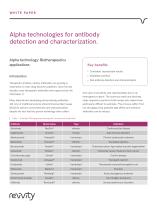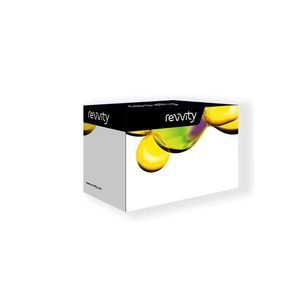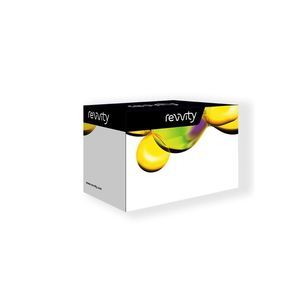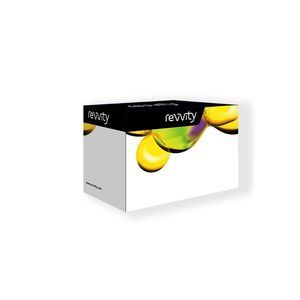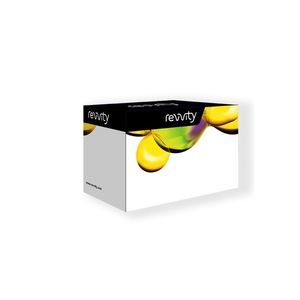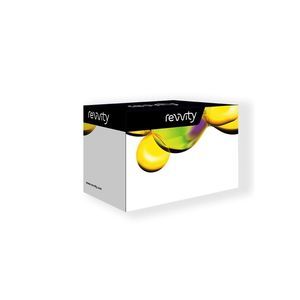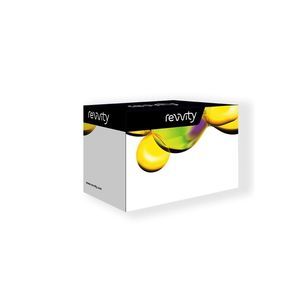
Research detection kit AlphaLISA™ oncologyapoptosisfor growth factors
Add to favorites
Compare this product
Characteristics
- Applications
- for research
- Application field
- oncology, apoptosis
- Tested parameter
- for growth factors
- Sample type
- cell, serum, plasma, urine
- Analysis mode
- ELISA
- Sample volume
0.01 ml
(0.00034 US fl oz)
Description
The AlphaLISA® Human TGF-β1 Detection Kit is designed for detection and quantitation of human TGF-β1 (hTGF-β1) in human serum, plasma, and cell culture supernatants using a homogeneous AlphaLISA assay (no wash steps). The assay shows negligible cross-reactivity with human hTGF-β2 and hTGF-β3.
Formats:
Our HV (100 assay point) kits allow you to run 100 wells in 96-well format,
Our 500 assay point kit allows you to run 500 wells in 96-well or 384-well format,
Our 5,000 assay point kit allows you to run 5,000 wells in 96-well or 384-well format,
Features:
No-wash steps, no separation steps
ELISA alternative technology
Sensitive detection
Broad sample compatibility
Small sample volume
Half the time of an ELISA assay
Transforming growth factor beta 1 or TGF-β1, part of the TGF β cytokine superfamily, is a 25 kD disulfide-linked homodimer. TGF-β1 is produced by many cell types including immune cells and controls cell growth, proliferation, differentiation, and apoptosis by modulating many other cytokines and cytokine receptors. Serum and urine concentrations of TGF β1 are a useful marker for determining the status of patients with diabetic nephropathy in type II.
AlphaLISA technology allows the detection of molecules of interest in a no-wash, highly sensitive, quantitative assay. In an AlphaLISA assay, a biotinylated anti-analyte antibody binds to the Streptavidin-coated Donor beads while another anti-analyte antibody is conjugated to AlphaLISA Acceptor beads. In the presence of the analyte, the beads come into close proximity.
Related Searches
- Assay kit
- Solution reagent kit
- Blood assay kit
- Molecular biology reagent kit
- Serum assay kit
- Immunoassay assay kit
- Plasma assay kit
- Infectious disease detection kit
- Research reagent kit
- Diagnostic reagent kit
- Laboratory reagent kit
- Molecular test kit
- Clinical assay kit
- Optical assay kit
- Fluorescence assay kit
- ELISA assay kit
- Buffer solution reagent kit
- Tablet PC software
- Research assay kit
- Quality control reagent kit
*Prices are pre-tax. They exclude delivery charges and customs duties and do not include additional charges for installation or activation options. Prices are indicative only and may vary by country, with changes to the cost of raw materials and exchange rates.


